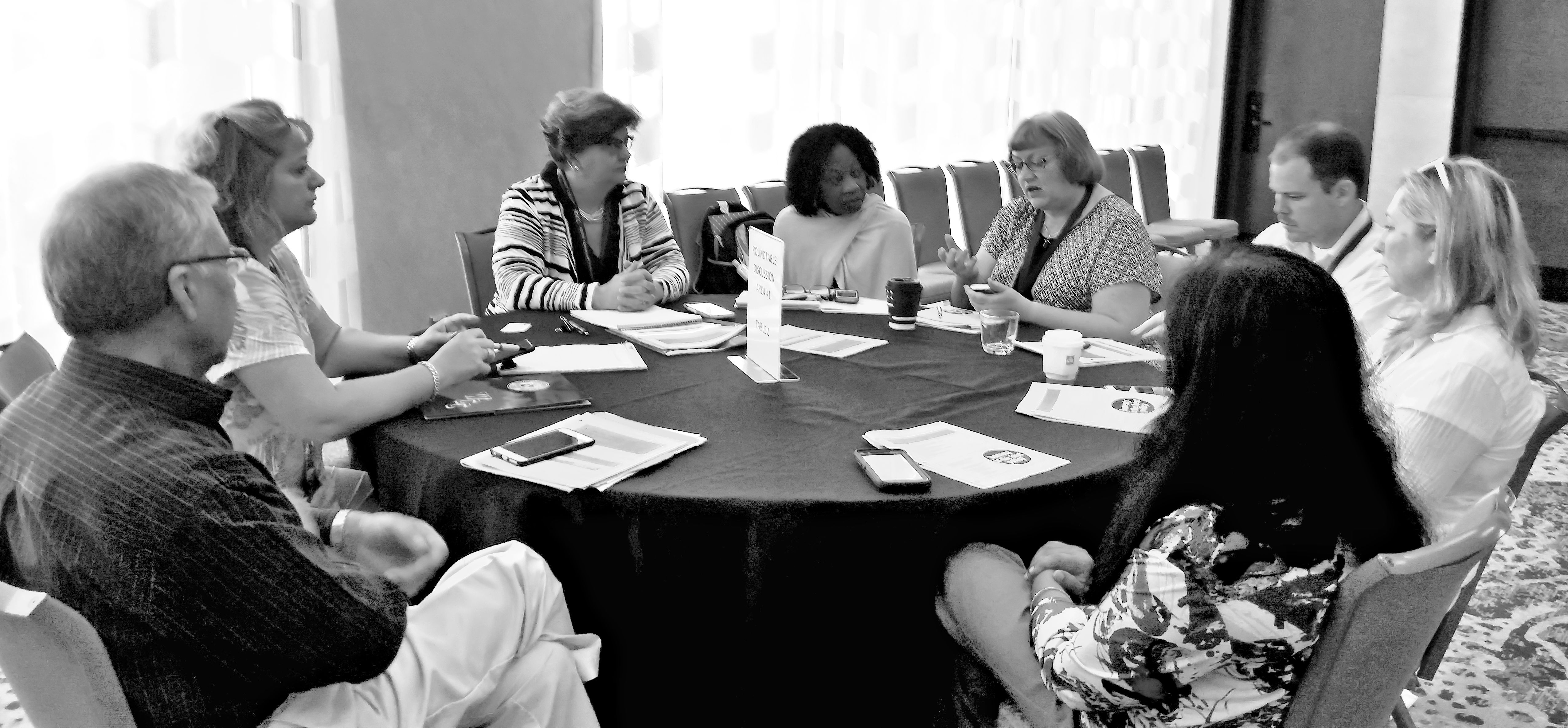Two Wayne Community College instructors co-presented at a recent international conference for community and technical college educators.
Math Instructors Laura Buddin and Katina Davis led a roundtable discussion on “Academic Integrity in an Online Environment” at the National Institute for Staff and Organizational Development’s International Conference on Teaching and Leadership Excellence in Austin, Texas.
The discussion revolved around what methods colleges employ to ensure academic rigor and honesty in a class that only meets online. Buddin and Davis talked about their department’s honor code and integrity statement that students must read and agree to prior to submitting graded work, and asked participants to share their policies.

In order to present at the conference, Buddin and Davis had to submit a proposal with proof that they had expertise and experience in the subject matter. Conference organizers reviewed the proposal for relevance and purpose before accepting it.
The National Institute for Staff and Organizational Development is a membership organization committed to promoting and celebrating excellence in teaching, learning, and leadership at community and technical colleges. For community and technical colleges that want to make the most of their professional development dollars, NISOD provides budget-friendly, high-quality, and faculty-focused programs and resources. For 40 years, NISOD’s customer-focused approach has helped align a wide array of benefits with the needs of its members, which explains why the American Association of Community Colleges named NISOD, “The country’s leading provider of professional development for community college faculty, staff, and administrators.” Visit www.nisod.org for more information.
Wayne Community College is a public, learning-centered institution with an open-door admission policy located in Goldsboro, N.C. As it works to develop a highly skilled and competitive workforce, the college serves around 12,000 individuals annually as well as businesses, industries, and community organizations with high quality, affordable, accessible learning opportunities, including more than 70 college credit programs. WCC’s mission is to meet the educational, training, and cultural needs of the communities it serves.

